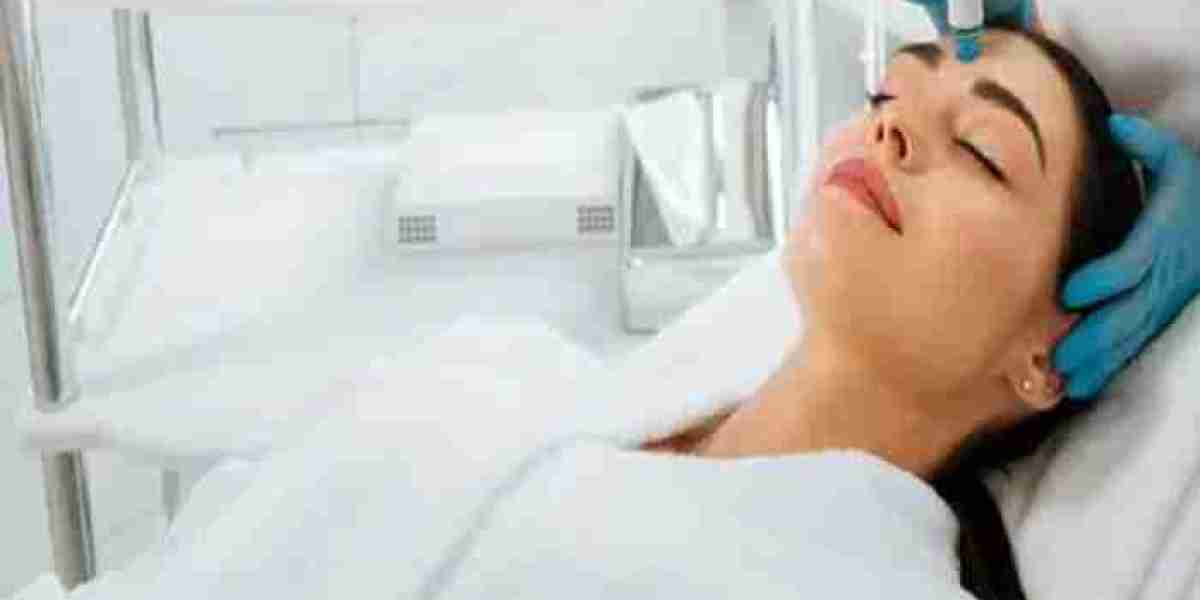Hydrafacial treatments have taken Riyadh’s skincare scene by storm, with countless residents turning to this innovative, non-invasive procedure for glowing, hydrated skin. Known for delivering instant results with zero downtime, it’s no surprise that Hydrafacial has become a favorite among beauty enthusiasts and dermatologists alike.
But what happens when the results aren’t quite what you expected?
If your Skin Looks Worse After Hydrafacial in Riyadh,, don’t panic. This temporary reaction is more common than you might think and often has logical explanations. In this blog, we’ll uncover the real reasons behind post-Hydrafacial skin issues in Riyadh, common misconceptions, and expert advice to ensure your skin gets back on track quickly.
What Is a Hydrafacial?
A Hydrafacial is a medical-grade resurfacing treatment that cleanses, exfoliates, extracts impurities, and hydrates the skin all in one session. Using patented vortex-fusion technology, it infuses the skin with a mix of serums tailored to your concerns—whether it’s acne, dullness, fine lines, or dehydration.
It’s especially popular in Riyadh due to its ability to combat dryness caused by harsh weather conditions and pollution, leaving the skin looking refreshed and radiant.
So, why would it cause your skin to look worse?
Why Your Skin Might Look Worse After Hydrafacial in Riyadh
There are several clinical and environmental factors that may lead to your skin reacting negatively after the treatment, particularly in Riyadh:
1. Skin Purging
Hydrafacial deeply exfoliates and unclogs pores, triggering what’s known as “skin purging.” This is when hidden impurities beneath the skin surface start surfacing, causing temporary breakouts. It’s actually a sign that your skin is detoxing and may last a few days to a week.
2. Climate Sensitivity
Riyadh’s dry desert climate can intensify post-treatment sensitivity. After a Hydrafacial, your skin becomes more vulnerable to environmental stressors like UV rays, dust, and heat. If you step outside without proper sun protection, it can lead to redness, flaking, or irritation.
3. Over-Exfoliation
Some people schedule multiple exfoliating treatments close together—chemical peels, scrubs, or retinoids—without giving their skin time to recover. Adding a Hydrafacial on top can cause over-exfoliation, leading to inflammation, peeling, or breakouts.
4. Reaction to Serums
Hydrafacials use various acids and serums like glycolic acid, salicylic acid, peptides, and antioxidants. While these are generally safe, some individuals may experience mild allergic reactions or irritation, especially if they have sensitive skin or underlying skin conditions.
5. Improper Aftercare
Skipping sunscreen, using harsh cleansers, or applying makeup too soon after the treatment can interfere with the healing process. This may clog pores and lead to breakouts or uneven texture.
Debunking Myths About Post-Hydrafacial Skin Issues
Myth 1: Hydrafacial Damaged My Skin
Not true. What you're likely seeing is transient irritation or purging. Hydrafacial is a safe, dermatologist-recommended treatment when done by professionals.
Myth 2: Breakouts Are a Sign the Treatment Failed
Actually, breakouts can mean the skin is purging and renewing itself. This is particularly common among people prone to acne or congestion.
Myth 3: Everyone Gets Glowing Skin Immediately
While many do, others may go through a short "ugly duckling" phase before achieving the glow. Skin recovery varies depending on your type and condition.
Post-Hydrafacial Tips from Riyadh Skincare Experts
To manage and minimize post-treatment issues, here are some expert-approved skincare tips tailored for Riyadh’s environment:
1. Hydrate, Hydrate, Hydrate
The dry air in Riyadh can deplete skin moisture quickly. Drink plenty of water and use a gentle hydrating serum or moisturizer to lock in hydration post-treatment.
2. Apply Sunscreen Religiously
Your skin is more sensitive to UV rays after a Hydrafacial. Wear a broad-spectrum SPF 50 daily, even indoors, and reapply when exposed to sunlight.
3. Avoid Harsh Products
For the first 48–72 hours, avoid retinol, exfoliants, and acids (AHA/BHA). Stick to a minimalist routine with a gentle cleanser, soothing moisturizer, and sunscreen.
4. Don’t Touch or Pick Your Skin
If you experience breakouts, resist the urge to pop or touch them. Picking can lead to scarring and longer recovery time.
5. Use a Humidifier at Home
Riyadh’s air is dry, especially during summer. A humidifier can help maintain moisture levels in your skin while you sleep, boosting recovery and comfort.
Choosing the Right Hydrafacial Clinic in Riyadh Matters
Not all clinics offer the same quality of care. Look for a clinic in Riyadh that:
Has licensed dermatologists or certified aestheticians
Uses authentic, FDA-approved Hydrafacial machines and serums
Customizes treatments based on skin type and concerns
Provides detailed aftercare instructions
Maintains high levels of hygiene and professionalism
Top-rated skin clinics in areas like Olaya, Al Malaz, and Al Mohammadiyah offer premium Hydrafacial services with positive client reviews.
When to See a Dermatologist
If your skin reactions last longer than 7 days, become painful, or worsen over time, consult a dermatologist in Riyadh. You may be experiencing an allergic reaction, infection, or another skin condition that needs targeted treatment.
Final Thoughts
While it can be disheartening to see your skin look worse after a Hydrafacial, it’s usually a temporary phase that resolves with proper care and patience. Whether it’s purging, sensitivity, or over-exfoliation, knowing what to expect and how to respond can help you navigate this period with confidence.
Riyadh’s unique climate and environmental conditions may influence how your skin reacts to treatments. That’s why it’s essential to choose a qualified skincare professional and follow all post-care recommendations closely.
In most cases, a few days of irritation is just the beginning of your skin’s journey toward a clearer, brighter, and healthier glow.





